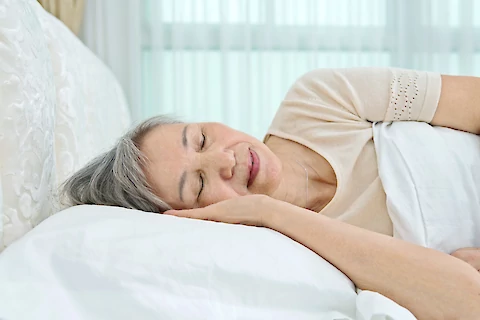
A good night's sleep rejuvenates our bodies, sharpens our minds, and sets the tone for our overall well-being. However, as we age, our sleep patterns tend to change. These changes can sometimes be puzzling, often leading to fragmented sleep or even insomnia. Understanding these changes can be challenging, but it's important to achieving optimal health.
Understanding the Science of Sleep
Sleep isn't just a passive state of rest. It's a complex biological process during which your body restores and rejuvenates itself. Humans, like all mammals, have a natural circadian rhythm - a 24-hour internal clock that regulates our sleep-wake cycle. As we age, however, this clock often shifts forward, causing us to feel sleepy earlier in the evening and wake up earlier in the morning.
How Aging Affects Sleep Patterns
As we age, our sleep architecture - the structure and pattern of our sleep - also changes. Seniors often experience fragmented sleep, waking up more often throughout the night and spending less time in the deep, restorative stages of sleep.
This can lead to feelings of tiredness and fatigue during the day. Additionally, many seniors suffer from insomnia, a sleep disorder characterized by difficulty falling asleep or staying asleep.
Common Challenges Seniors Face Regarding Sleep
Fragmented sleep and insomnia can have a significant impact on a senior's quality of life. Fragmented sleep could be due to a variety of reasons, from medical conditions like sleep apnea to lifestyle factors such as excessive caffeine consumption.
Insomnia, on the other hand, can often be linked to psychological conditions such as anxiety or depression or physical health problems like chronic pain.
Practical Tips to Adjust to Sleep Pattern Changes
Improving sleep hygiene can be an effective way to combat sleep issues. This includes maintaining a regular sleep schedule, creating a restful sleeping environment, and avoiding stimulants like caffeine and alcohol close to bedtime.
Regular exercise and a healthy diet can also contribute to better sleep. Still, seniors should consult with their doctor before starting a new exercise routine. If sleep problems persist despite these adjustments, it's important to consult a healthcare provider. Persistent sleep issues can sometimes indicate underlying health conditions that need to be addressed.
Discover Compassionate Senior Care
Understanding and managing changes in sleep patterns with age can be challenging, but it's critically important for maintaining a good quality of life in our later years. Adapting to these changes, maintaining good sleep hygiene, and seeking medical advice when needed are essential steps in this process.
If you or a loved one is struggling with sleep issues, don't hesitate to reach out to us at Senior Helpers Northern Mississippi. We serve seniors in Byhalia, Holly Springs, Horn Lake, Olive Branch, and Oxford, providing compassionate and effective care tailored to each individual's needs. Contact us to learn more about our senior care services!